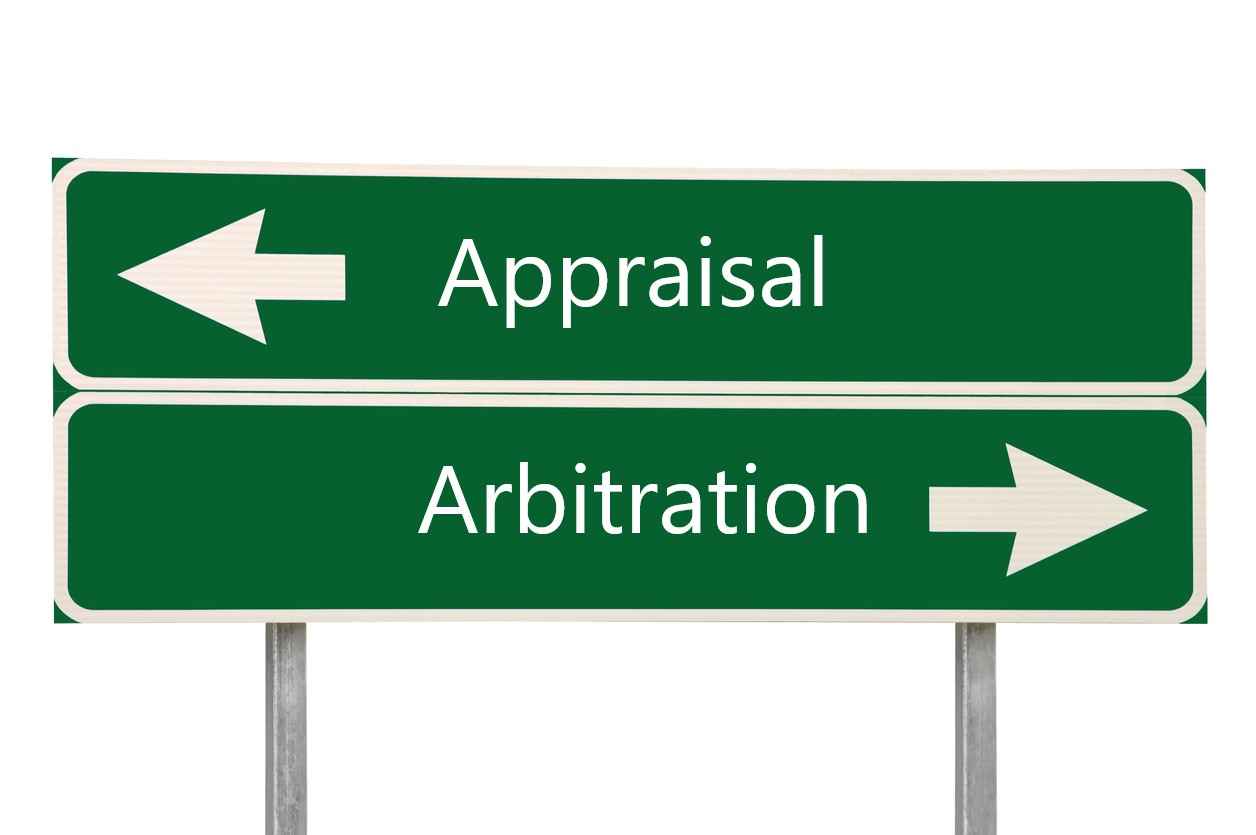Property insurance policies have long-contained appraisal and arbitration provisions.1 Although both avenues offer insureds the ability to resolve their claims through extrajudicial means, each has clear distinctions and similarities. In certain circumstances, some issues may only be resolved through a trial court.
Appraisal and Arbitration differ in terms of formality and procedure.2 Appraisal is an informal process where appraisers are expected to act from their expertise and “meet only to iron out any differences in their opinions.”3 They are not required to give formal notice of their activities or hear evidence and can conduct their own investigations in good faith.4 In contrast, arbitration is considered a quasi-judicial proceeding governed by the Florida Arbitration Code where each party is entitled to a full hearing: including the right to counsel, the opportunity to present evidence, and the right to cross-examine witnesses.5 Further, “unlike appraisal, an arbitration panel can only adjudicate a case on what is presented to them during the course of the proceeding.”6
That being said, appraisal and arbitration have one important similarity. Florida courts have found that generally, questions concerning coverage are not proper subjects for appraisal or arbitration.7 One example of a coverage issue is causation, and Florida courts have found causation to be a coverage question for the court to determine and not an appraisal panel.8 That is, while each process may be a proper avenue to determine an amount-of-loss in question, neither should generally be used as a means to resolve a claim that an insurer has fully denied.9 When a determination of an amount-of-loss is all that is in dispute, then an appraisal or arbitration panel may be an appropriate means for resolution.10
While differences exist between appraisal and arbitration in terms of formality and procedure, they do have an important similarity. If a carrier completely denies an insured’s claim, then the insured may expect any questions of policy interpretation and coverage to be reserved for a trial court, and to not fall within the purview of an appraisal or arbitration panel.11 However, should a dispute arise as to the scope and price of a covered loss, then appraisal and arbitration could be avenues that the parties may decide, through counsel, to contemplate.
______________________________________________________
1 See New Amsterdam Cas. Co. v. J.H. Blackshear, Inc., 156 So. 695, 695 (Fla. 1934).
2 Citizens Prop. Ins. Corp. v. Mango Hill, 117 So. 3d 1226, 1229 (Fla. 3d DCA 2013); See also Allstate Ins. Co. v. Martinez, 790 So. 2d 1151, 1152 (Fla. 3d DCA 2001), approved, 833 So. 2d 761 (Fla. 2002)(“However, appraisal and arbitration are not identical processes. Appraisers are expected to act on their expertise. They need to meet only to iron out any differences in their opinions”).
3 Id.
4 Mango Hill, 117 So. 3d 1226 at 1229.
5 Mango Hill, 117 So. 3d 1226 at 1230.
6 Id.
7 Atencio v. U.S. Sec. Ins. Co., 676 So. 2d 489 (Fla. 3d DCA 1996).
8 Johnson v. Nationwide Mut. Ins. Co., 828 So. 2d 1021, 1022 (Fla. 2002).
9 Id.
10 Id.; Atencio v. U.S. Sec. Ins. Co., 676 So. 2d 489, 490 (Fla. 3d DCA 1996)(“[Q]uestions of policy interpretation and coverage are ordinarily for the court, rather than arbitrators or appraisers, to decide”)(interpreting an automobile insurance policy’s appraisal provision).
11 Id.





